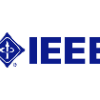IEEE 802.11be (Wi-Fi 7) introduces Multi-Link Operation (MLO) as a While MLO offers significant parallelism and capacity, realizing its full potential in guaranteeing strict delay bounds and optimizing Quality of Service (QoS) for diverse, heterogeneous traffic streams in complex multi-link scenarios remain a significant challenge. This is largely due to the limitations of static Enhanced Distributed Channel Access (EDCA) parameters and the complexity inherent in cross-link traffic management. To address this, this paper investigates the correlation between overall MLO QoS indicators and the configuration of EDCA parameters and Acess Catagory (AC) traffic allocation among links. Based on this analysis, we formulate a constrained optimization problem aiming to minimize the sum of overall packet loss rates for all access categories while satisfying their respective overall delay violation probability constraints. A Genetic Algorithm (GA)-based MLO EDCA QoS optimization algorithm is designed to efficiently search the complex configuration space of AC assignments and EDCA parameters. Experimental results demonstrate that the proposed approach's efficacy in generating adaptive MLO configuration strategies that align with diverse service requirements. The proposed solution significantly improves delay distribution characteristics, and enhance QoS robustness and resource utilization efficiency in high-load MLO environments.
翻译:暂无翻译



